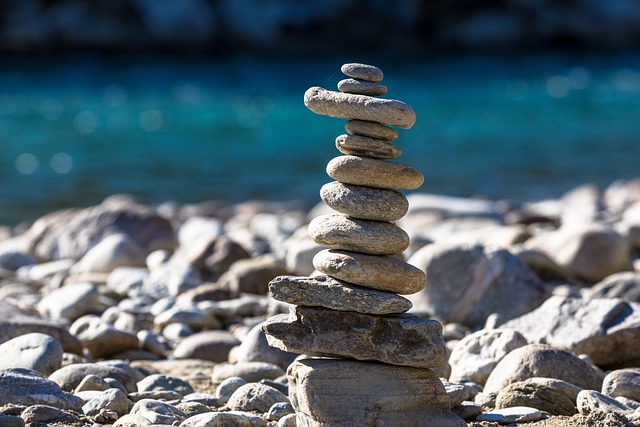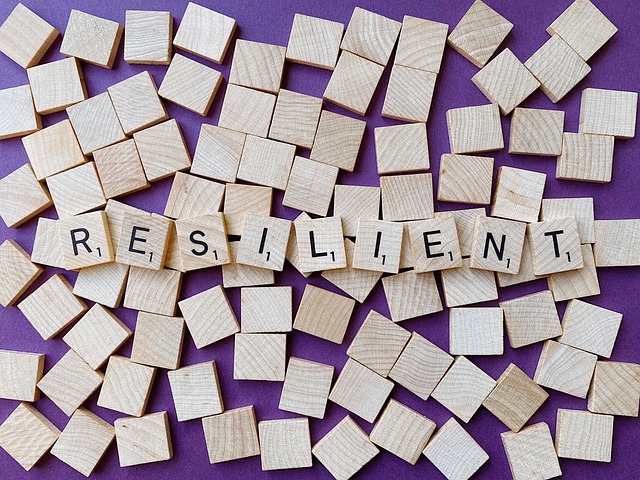The Importance of Emotional Balance in Personal Development
In today’s fast-paced world, many individuals often neglect the crucial aspect of emotional balance in their journey of personal development. Emotional balance represents the state of being where an individual can manage their feelings and reactions effectively. It’s not about suppressing emotions; rather, it’s about understanding and processing them in a healthy way. Emotional balance impacts how we perceive the world, interact with others, and make decisions. Striking this balance is vital for personal development. Recognizing and nurturing our emotional states leads to more enriched lives, improved relationships, and a deeper understanding of ourselves.
Think about emotional balance as the foundation of a strong building. If the foundation is weak, the structure itself becomes vulnerable. Similarly, without emotional balance, personal development can crumble under the weight of stress, anxiety, and negative feelings. When an individual achieves emotional balance, they become more equipped to face life’s challenges. This balance creates resilience. Life presents various obstacles, and without emotional fortitude, it’s easy to become overwhelmed. However, a balanced emotional state allows us to process challenges with clarity and resolve. It’s a skill that, once cultivated, empowers us to keep moving forward even when the going gets tough.
Furthermore, emotional balance deeply affects relationships with others. When we maintain our emotional health, we interact in more meaningful and constructive ways. A person lacking emotional balance might react impulsively or exhibit erratic behavior, which can alienate friends, family, and coworkers. Conversely, someone who practices emotional balance can engage in conversations more empathetically and openly. They listen better, communicate clearly, and express understanding. This fosters deeper connections. When we balance our emotions, we invite a wave of positivity into our relationships, enriching bonds with trust and respect. Strong personal relationships significantly aid personal development as they provide support, feedback, and encouragement.
Understanding Emotional Balance
Understanding emotional balance involves recognizing your emotional spectrum. Everyone experiences a wide range of emotions, some might lean toward positive feelings, while others frequently face negative ones. The key is not to judge these feelings but to recognize and accept them. Take sadness as an example; rather than pushing it away, allow yourself to feel it. Journaling can help in this aspect. Expressing thoughts on paper brings clarity. Diving deep into emotions enhances self-awareness. This act of understanding your emotions allows for better management. When you understand why you feel a certain way, you build a toolkit for responding effectively. Putting feelings into words can also help reduce their power over you. Thus, self-expression becomes a vital piece of the emotional balance puzzle.
Another factor in achieving emotional balance is setting boundaries. Every individual has a unique emotional capacity, and it’s essential to recognize and respect your limits. When you know when to say ‘no,’ you protect your emotional space. For instance, if social gatherings regularly drain your energy, it’s perfectly acceptable to prioritize solitude or self-care activities. Establishing boundaries leads to self-respect. It sends a clear signal to others on how you wish to be treated. Moreover, boundaries prevent emotional fatigue. By carving out time for personal recharge, you enhance your capacity for healthy relationships and personal growth. Setting clear boundaries fosters a sense of control and further solidifies emotional stability.
The Role of Self-Care in Emotional Balance
Self-care plays a significant role in maintaining emotional balance. You might wonder how simple acts of self-kindness contribute to emotional health. The connection lies in recognizing that when we nurture ourselves, we elevate our emotional well-being. This nurturing can take many forms. It could involve engaging in hobbies that bring joy, participating in physical activities, or simply allowing time for rest. Creating a self-care routine allows us to build resilience. Taking time for activities that replenish our energy acts like a safety net. It cushions us against the daily stresses we face and adds layers of emotional support. For example, engaging in a hobby like painting, gardening, or reading instills a sense of accomplishment and joy.
Moreover, self-care informs our daily actions. When we prioritize our well-being, we become more centered. This focus means we respond more thoughtfully to emotional triggers. Whether it’s stress at work or conflict with a friend, a well-cared-for mind is better prepared to handle troubles calmly. For instance, consider someone who practices yoga regularly. This person likely experiences enhanced emotional stability due to the meditative benefits of yoga. Breathing exercises calm the nervous system. Incorporating mindfulness through self-care helps in cultivating a more balanced emotional state. In other words, when we take care of our bodies and minds, we are less likely to react impulsively and more likely to embrace a thoughtful response.
Building Emotional Intelligence
One cannot discuss emotional balance without addressing the role of emotional intelligence (EI). Emotional intelligence involves perceiving, assessing, and managing emotions in oneself and others. People with high EI demonstrate emotional balance naturally. They navigate life’s ups and downs with grace. Building emotional intelligence can significantly aid personal development. It requires conscious effort and practice. First, observe your emotions and reactions in different situations. Begin to recognize patterns. Do certain situations trigger anger or frustration? By identifying these triggers, you gain valuable insights into your emotional responses. This awareness forms the foundation for understanding how to manage these emotions better. An important component of emotional intelligence is empathy. Understanding how others feel and reacting to emotional cues fosters social connections.
The ability to empathize enhances communication skills tremendously. When you can sense another’s emotional state, your responses become more attuned and supportive. This doesn’t mean that you have to solve their problems; rather, it involves being present. Effective listening shows compassion. This relational aspect creates stronger bonds, enriching both your life and the lives of those around you. Furthermore, practicing adaptability is essential for emotional balance. Flexibility in facing emotional challenges becomes vital as circumstances change. Whether it’s adjusting your expectations or finding new coping strategies during tough times, adaptability facilitates personal growth. When you allow emotional intelligence to guide your actions, you stand to gain a wealth of insights into both yourself and the humanity around you.
Challenges to Maintaining Emotional Balance
Several factors can challenge emotional balance. Life is unpredictable, and everyone inevitably faces stressful situations. Changes such as job loss, relationship troubles, and health issues can disrupt our emotional equilibrium. While these challenges are a natural part of life, it’s essential to recognize when they threaten to overwhelm you. Stressful or traumatic experiences can lead to emotional dysregulation. For instance, prolonged exposure to stress hormones can wreak havoc on mental health, leading to anxiety and depression. In such situations, an individual might feel like they are on an emotional rollercoaster, struggling to regain their footing, which can impede personal development.
Coping with life’s challenges requires a strategic approach to maintain emotional balance. Developing a support network plays a significant role here. Friends, family, or support groups can offer an outlet for feelings and frustrations. Sharing experiences can lighten your emotional load. Communicating with those who genuinely listen provides much-needed relief and perspective. Additionally, recognizing patterns of negative thinking becomes crucial. Have you ever caught yourself spiraling into negative thoughts? Establishing awareness allows you to counter those thoughts with positive affirmations. Challenge pessimistic beliefs. Finding justifiable reasons for self-criticism can be empowering. These practices prevent emotional imbalances from spiraling uncontrollably and will pave the path for healthier emotional responses.
Practical Techniques for Enhancing Emotional Balance
To cultivate emotional balance, individuals can adopt a variety of practical techniques. Start by creating a routine that prioritizes mental health. Engage in activities that inspire you daily. Whether it’s a morning jog, meditation, or a creative outlet, consistency in these activities builds emotional resilience. Breathing exercises present another straightforward yet effective tool for maintaining emotional balance. Deep breathing can soothe anxiety and help individuals return to a grounded state. You might find it beneficial to practice deep breathing techniques. When feeling overwhelmed, simply pause, inhale deeply through your nose for four counts, hold for four counts, then exhale slowly through your mouth for four counts. This slows down the heart rate and calms the nervous system.
Embracing mindfulness practices is another powerful approach. Mindfulness encourages living in the moment. By practicing mindfulness, you heighten focus on the present, reducing anxiety and filtering out distractions. You could start with mindful meditation. Find a quiet space, sit comfortably, and concentrate on your breath. If your mind wanders, gently bring it back to your breath without judgment. Regular mindfulness practice increases emotional awareness and self-regulation. Another practical technique involves developing a gratitude practice. Take a moment each day to acknowledge and appreciate the positive aspects of your life. This could be through journaling or verbally expressing gratitude to loved ones. Gratitude shifts focus from negative thoughts to positive aspects, promoting emotional balance. The more you practice, the easier it becomes to acknowledge the good in everyday life.
FAQ
1. What is emotional balance?
Emotional balance refers to the ability to manage and respond to one’s emotions in a healthy and productive manner. It involves recognizing, understanding, and regulating one’s feelings, leading to improved mental well-being and personal development.
2. How does emotional balance impact personal development?
Emotional balance is crucial for personal development as it fosters resilience, aids in effective communication, enhances relationships, and promotes self-awareness, allowing individuals to navigate challenges more effectively.
3. What role does self-care play in achieving emotional balance?
Self-care helps in maintaining emotional balance by allowing individuals to recharge mentally and physically, reducing stress, and creating spaces to reflect, enabling better emotional regulation and improved overall well-being.
4. Can anyone learn to achieve emotional balance?
Yes, emotional balance can be cultivated by anyone. It involves practices such as self-awareness, emotional regulation, and self-care routines, which can be developed over time with conscious effort.
5. What are some practical techniques for improving emotional balance?
Practical techniques include mindfulness meditation, deep breathing exercises, maintaining a gratitude practice, establishing a consistent self-care routine, and recognizing and challenging negative thought patterns.



